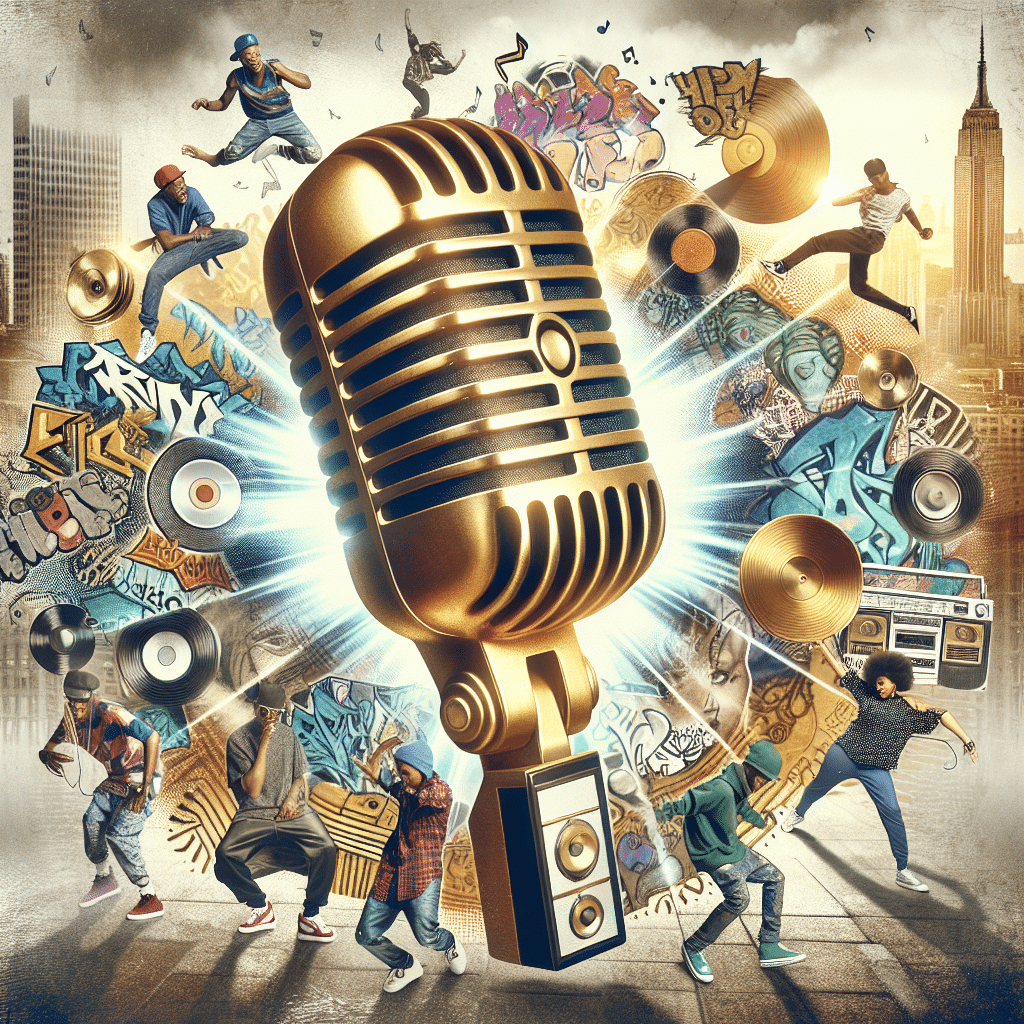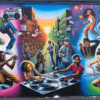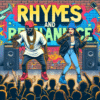Beyond Beats: The Cultural Impact of Top Hip Hop Artists

Hip hop has transcended its origins as a musical genre to become a global cultural phenomenon. Emerging in the 1970s from the Bronx, New York, hip hop has evolved through decades, influencing fashion, language, social movements, and youth culture. This article delves into the diverse cultural impacts of top hip hop artists, illustrating how their voices have shaped society and how they continue to carve out a significant place in global culture.
The Birth of Hip Hop Culture
Hip hop arose as a response to socio-economic challenges faced by African American communities. The amalgamation of music, dance, and art forms provided an outlet for self-expression. Pioneers like DJ Kool Herc, Grandmaster Flash, and Afrika Bambaataa laid the groundwork for a culture that celebrates individuality, creativity, and resilience. Their contributions established the core elements of hip hop—rapping, DJing, graffiti art, and breakdancing—which continue to influence various artistic domains.
Shaping Identity and Community
Hip hop serves as a vehicle for identity formation and community building among marginalized groups. Artists like Tupac Shakur and The Notorious B.I.G. highlighted issues such as poverty, violence, and systemic racism through their lyrics. They humanized the struggles of inner-city life, allowing listeners to relate to their experiences and fostering a sense of camaraderie among those who share similar backgrounds.
See Also: Rhythm and Rhyme: How Hip Hop Beats Shape the Genre's Identity
Rhythm and Rhyme: How Hip Hop Beats Shape the Genre's IdentityKendrick Lamar, a contemporary voice of the genre, has pushed these conversations further. His album To Pimp a Butterfly tackled themes of racial identity and the complexities of living as a Black man in America. Such artists not only entertain but serve as catalysts for dialogue on pressing social issues, highlighting the importance of hip hop in shaping public discourse.
Political Influence and Activism
The potent mix of artistry and activism in hip hop has led to a significant cultural impact. Public Enemy, with their politically charged messages, emerged as a voice for racial equality and social justice during the late 1980s. Their music galvanized the youth, encouraging them to engage politically and socially.
More recently, artists like J. Cole and Cardi B have utilized their platforms to advocate for various causes, whether it’s police brutality, women's rights, or economic inequality. The immediacy of social media allows these messages to reach a global audience, making hip hop an essential tool for activism. The genre continues to inspire new generations to stand up against injustice, as seen in the responses to movements like Black Lives Matter.
See Also: Rhyme and Reason: Analyzing the Evolution of Hip Hop Lyricism
Rhyme and Reason: Analyzing the Evolution of Hip Hop LyricismThe Globalization of Hip Hop
The cultural impact of hip hop extends beyond the borders of the United States. As the genre gained popularity internationally, it adapted to local contexts. From the afrobeat-infused raps of Nigeria’s Olamide to the gritty, underground scenes of the UK’s Grime, hip hop influences local music and cultural expressions in unique ways.
K-Pop sensations like BTS have even incorporated hip hop elements into their work, showcasing the genre’s versatility and global appeal. This cultural exchange has fostered a sense of unity among diverse populations, connecting individuals through shared musical experiences.
Hip Hop and Fashion
The relationship between hip hop and fashion is a foundational aspect of the genre's cultural impact. Icons like Run-DMC and LL Cool J were pivotal in establishing streetwear as a fashion movement, while also forging partnerships with global brands. Today, artists such as Kanye West and Pharrell Williams further blur the lines between music and fashion, creating their own clothing lines and influencing trends worldwide.
See Also: From Underground to Mainstream: The Rise of Hip Hop's Newest Stars
From Underground to Mainstream: The Rise of Hip Hop's Newest StarsThis synergy has not only empowered artists to become entrepreneurs but has also escalated the visibility of Black designers and a broader range of cultural aesthetics in mainstream fashion. The ongoing dialogue around fashion within hip hop underscores the genre's role as a formidable cultural influencer.
Language and Communication
Hip hop has also impacted language and communication. The use of vernacular, slang, and coded language in rap has introduced new expressions and linguistic styles into mainstream dialogue. Artists such as Nas and Lil Wayne play with language in innovative ways, highlighting the artistry of wordplay and storytelling.
The adoption of hip hop language has seeped into various cultural spaces, including advertising, film, and even politics. Politicians and public figures often adopt hip hop vernacular to resonate with younger audiences. As such, hip hop artists not only contribute to cultural lexicons but also elevate the conversation around language and authenticity in their communities.
Mental Health and Vulnerability
See Also: Game Changers: How Today's Top Hip Hop Artists Are Redefining the Genre
Game Changers: How Today's Top Hip Hop Artists Are Redefining the GenreIn recent years, discussions around mental health have gained prominence within hip hop. Artists like Kid Cudi and Logic have opened up about their struggles with mental illness, challenging the stigma often associated with vulnerability, especially within the Black community. By sharing their stories, they create a sense of solidarity among fans who may be experiencing similar challenges.
This shift towards candidness has transformed hip hop into a space where mental health can be addressed openly, marking a significant cultural impact that fosters compassion and understanding.
Conclusion: The Importance of Beyond Beats
The cultural impact of top hip hop artists is profound and multi-faceted. From shaping identity and social movements to influencing language, fashion, and mental health conversations, hip hop's reach is far beyond mere beats and rhymes.
As a powerful tool for advocacy, education, and connection, hip hop continues to inspire and ignite change. Recognizing and celebrating this impact is essential, as it highlights the genre's role in shaping contemporary culture and contributes to ongoing discussions about social justice, identity, and community empowerment.
See Also: The Evolution of Hip Hop: How Today's Artists are Shaping the Genre
The Evolution of Hip Hop: How Today's Artists are Shaping the GenreFAQs
Q1: How did hip hop begin?
A1: Hip hop began in the Bronx, New York, during the 1970s as a response to socio-economic challenges. It combines elements of music, dance, and art, originating from DJs and MCs who created breakbeats at block parties.
Q2: Who are some influential hip hop artists?
A2: Influential hip hop artists include Tupac Shakur, The Notorious B.I.G., Nas, Kendrick Lamar, J. Cole, and Cardi B, among many others. Each has made significant contributions to the genre and society at large.
See Also: Rhymes and Relevance: Exploring the Lives of Today's Top Hip Hop Icons
Rhymes and Relevance: Exploring the Lives of Today's Top Hip Hop IconsQ3: How has hip hop influenced fashion?
A3: Hip hop has established streetwear as a significant fashion movement, influencing global trends through collaborations with brands and the creation of individual artists’ clothing lines.
Q4: In what ways has hip hop contributed to social justice?
A4: Hip hop has served as a platform for discussing social justice issues such as racism, poverty, and police brutality, with many artists using their voices to advocate for change and inspire activism.
Q5: How is mental health addressed in hip hop?
A5: Artists have increasingly opened up about mental health struggles, challenging stigma and fostering open discussions around the topic, leading to greater understanding and compassion within the community.
See Also: Beyond the Beat: The Cultural Significance of Hip Hop Lyrics in Today's Society
Beyond the Beat: The Cultural Significance of Hip Hop Lyrics in Today's SocietyIf you want to know other articles similar to Beyond Beats: The Cultural Impact of Top Hip Hop Artists you can visit the category Hip Hop.
